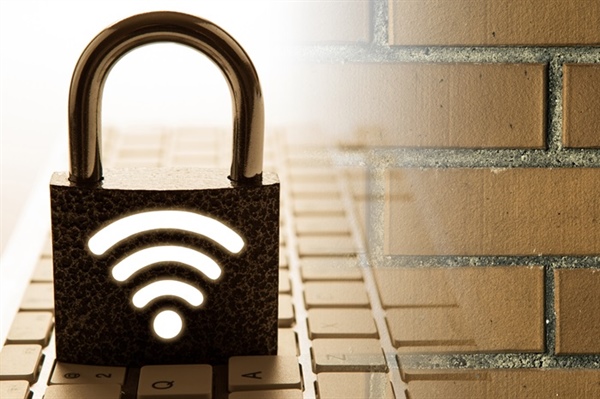Securing Your Business Wi-Fi Network: Best Practices for Protecting Data & Privacy

In today's hyper-connected world, the security of a business's Wi-Fi network is not just a technical necessity but a cornerstone of its overall digital defense strategy. Safeguarding sensitive data against cyber threats is paramount.
As businesses increasingly rely on wireless networks for daily operations, the potential for security breaches grows, making robust Wi-Fi security measures essential.
Imagine a typical day at the office, where every transaction, client interaction, and strategic decision relies on secure, uninterrupted network access. Now, picture the chaos that could ensue from even a minor disruption or security breach.
This scenario is not just hypothetical; it's a risk that businesses face without proper Wi-Fi security protocols such as encryption, network segmentation, and access control policies.
At Lighthouse Technology Solutions, we understand the complexities of Wi-Fi security and are committed to providing solutions that protect your business from unwanted intrusions and cyber threats.
This article explores the best practices in Wi-Fi network security, including advanced encryption protocols, effective network segmentation, stringent access controls, regular firmware updates, sophisticated intrusion detection systems, and comprehensive employee training.
Encryption Protocols: The First Line of Defense
Encryption is a fundamental aspect of Wi-Fi security, serving as the first line of defense against cyber intrusions. We recommend using the latest encryption standards, such as WPA3, which provides robust protection through features like individualized data encryption.
This prevents eavesdroppers from intercepting the data transmitted over the network, ensuring that sensitive business information remains confidential and secure.
Upgrading to WPA3 also offers advanced features such as Forward Secrecy, which protects past sessions against future breaches.
Network Segmentation: Isolating Sensitive Data
Network segmentation is a critical strategy for enhancing Wi-Fi security. By dividing the network into separate zones, businesses can isolate sensitive data and systems from the general network traffic.
This limits the potential impact of a cyber attack, as attackers can't easily access critical systems from less secure areas of the network.
We help businesses implement VLANs (Virtual Local Area Networks) and subnetting to achieve effective segmentation. These techniques are essential for businesses handling sensitive financial or personal data, providing an additional layer of security by segregating network traffic based on user type, function, or data sensitivity.
Access Control Policies: Managing Network Entry
Robust access control policies are essential for securing a Wi-Fi network. These policies determine who can connect to the network and the resources they can access.
Implementing strong authentication methods, such as multi-factor authentication (MFA), can significantly enhance network security by requiring users to provide multiple forms of verification before gaining access.
We advise businesses to maintain detailed logs of network access and to regularly review and update access controls to adapt to new security challenges and business needs. Regular audits of these controls help ensure that only authorized users have network access and that their permissions are appropriately aligned with their job requirements.
Firmware Updates and Intrusion Detection: Keeping the Network Up-to-Date and Monitored
Keeping network equipment updated with the latest firmware is crucial for closing security vulnerabilities. We support businesses in setting up automated update policies to ensure that all network devices receive the latest security patches and updates promptly.
Additionally, intrusion detection systems (IDS) play a vital role in identifying and responding to potential security threats. These systems monitor network traffic for suspicious activity and alert administrators to potential threats.
Implementing an IDS provides an essential security layer, helping to detect and mitigate attacks before they cause significant damage.
Employee Training: A Crucial Aspect of Wi-Fi Security
The human element often represents the weakest link in Wi-Fi security. Regular training programs on Wi-Fi security best practices are crucial for ensuring that employees are aware of potential security threats and how to avoid them.
By educating employees about the risks and techniques used by cybercriminals, businesses can strengthen their overall security posture and protect their networks from both internal and external threats.
Establishing a Comprehensive Wi-Fi Security Strategy
We understand that securing a business's Wi-Fi network requires a comprehensive approach that encompasses more than just technical solutions. Our services are designed to provide a holistic security strategy that includes assessment, implementation, and ongoing management of Wi-Fi security measures tailored to each business's unique needs.
Our team will assist you in developing a security strategy that aligns with industry best practices and compliance requirements, and we don't just stop at enhanced security strategies; our comprehensive services include data storage, business phone systems, voice services, and much more.
Ready to Secure Your Business's Wi-Fi Network? Contact us today to schedule a consultation.